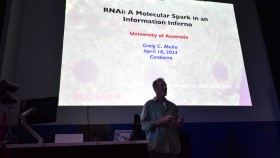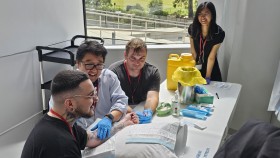New Computational Tool for Understanding Cancer
Researchers led by Professor Eduardo Eyras at the John Curtin School of Medical Research have developed a new tool with the potential to provide insight into the causes of brain cancer.
It is estimated 1,968 new cases of brain cancer were diagnosed in Australia in 2019.
This new tool can be used to investigate isoforms specific to cancer cells, which has never been done before.
The variable gene products produced by different cells are called isoforms, and they determine the cell’s function and fate.
Even though our cells have the same genetic material (DNA), isoforms determine whether a cell will be a neuronal cell, a liver cell, or even whether a cell must die.
“Cancer cells, regardless of their tissue of origin, can be effectively discriminated from non-cancer cells by looking at the expression of gene isoforms, and this approach sometimes provide a better discrimination than simply looking at overall gene expression.” said Professor Eyras.
The new tool developed by the researchers at JCSMR can be used to investigate how gene isoforms that are specific to a cell type are translated into proteins.
“The relevance of looking at the isoforms in cancer cells, is that we can directly gain insight into the abnormal cell physiology that leads to cancer.
This has previously been oriented to gene-level analysis.” explains Ms Marina Reixachs, PhD Candidate and the first author of the paper.
“Now, we can look directly at isoforms and uncover new molecular mechanisms that lead to cancer”.
The researchers applied this tool to study samples of glioma and found new translated isoforms that are not present in normal samples and that had not been described before.
The scale and complexity of genetic and genomic data are ever-expanding, requiring biologists to apply increasingly more sophisticated computational tools in the analysis, interpretation and storage of these data.
“The development of this tool gives biologists the opportunity to investigate genes in greater detail, providing us further understanding of genetic implications in health and disease.” Said Professor Eyras, lead researcher in the study.
This work has been published today in Nature Communications.
The John Curtin School of Medical Research is Australia’s national medical research institute, taking pride in basic biomedical science.














